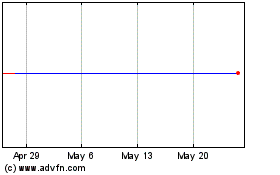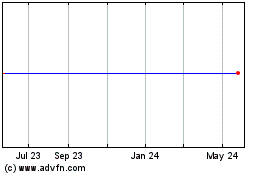2nd UPDATE: US Court Ruling In Microsoft Case Could Curb Patent Damages
January 04 2011 - 5:46PM
Dow Jones News
A federal court ruling Tuesday in a case involving Microsoft
Corp. (MSFT) could curb some of the huge damage awards that have
hit big companies in patent litigation.
The U.S. Court of Appeals for the Federal Circuit, a specialized
court that handles patent appeals, said it will now prohibit the
use of a commonly used rule that says a patent infringer generally
should pay 25% of expected profits on the product using the
patent.
The ruling "is a huge change in the law that overturns existing
precedent and calls many existing damages verdicts into question,"
said Edward Reines, a patent attorney with Weil, Gotshal &
Manges LLP who is not connected to the case.
"The Federal Circuit has been moving toward confining excess
damages in patent cases and this is another step in that
direction," Reines said.
The appeals court, in a 59-page ruling, restored a jury's
verdict that Microsoft infringed a patent held by Uniloc USA
related to combating software piracy, but ruled that the software
giant was entitled to a new trial on damages.
The court said the jury's $388 million award to Uniloc, a
security software maker, was "fundamentally tainted." The jury
award was one of the largest patent verdicts on record.
A Uniloc expert had used the so-called "25% rule" at trial to
calculate the company's estimate of what Microsoft owed for
infringing the patent.
But the appeals court said the rule was "fundamentally flawed"
and inadmissible because it failed to tie a reasonably royalty rate
to the facts of a given case.
David Howard, Microsoft's deputy general counsel, said in a
statement that the ruling "is an important and helpful opinion with
respect to the law of damages, and it may signal the end of
unreasonable and outsized damages awards based on faulty
methodology."
Uniloc USA Chief Executive Brad Davis the court's decision that
Microsoft infringed the company's patent "illustrates how large
corporations like Microsoft have knowingly infringed on our
technology for financial gain."
He expressed disappointment at the court's rejection of the $388
million damages award, but said the company would work with the
ruling.
Uniloc's patent deals with technology for software registration
systems that deter the copying of software.
The Irvine, Calif.-based company filed suit against Microsoft in
2003, alleging the product activation feature on Windows XP and
other Microsoft products infringed its technology. It initially
sought $560 million in damages.
Tuesday's ruling reversed a federal judge in Rhode Island who
ruled against Uniloc's patent infringement claims.
Uniloc has similar lawsuits pending against Adobe Systems Inc.
(ADBE), McAfee Inc. (MFE), Symantec Corp. (SYMC) and Sony Corp.
(SNE, 6758.TO), Davis said.
Stanford University law professor Mark Lemley said plaintiffs
have attempted to use the 25% rule has in a wide array of cases,
particularly technology cases.
He said the rule made little logical sense in the tech context
because products usually are made of many different components that
each embody many different patents.
The idea that the holder of one patent should be entitled to 25%
of the product's profits "is arbitrary and almost certainly wrong,"
he said.
The case is Uniloc USA v. Microsoft, 2010-1035.
-By Brent Kendall, Dow Jones Newswires; 202-862-9222;
brent.kendall@dowjones.com
Mcafee (NYSE:MFE)
Historical Stock Chart
From Jun 2024 to Jul 2024

Mcafee (NYSE:MFE)
Historical Stock Chart
From Jul 2023 to Jul 2024
